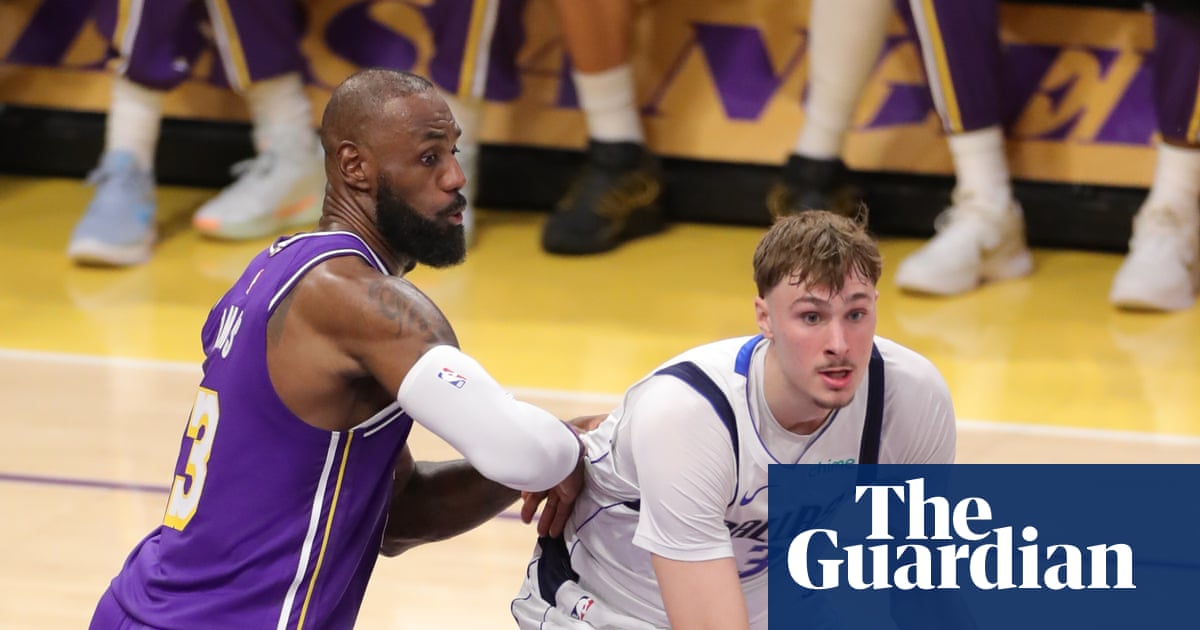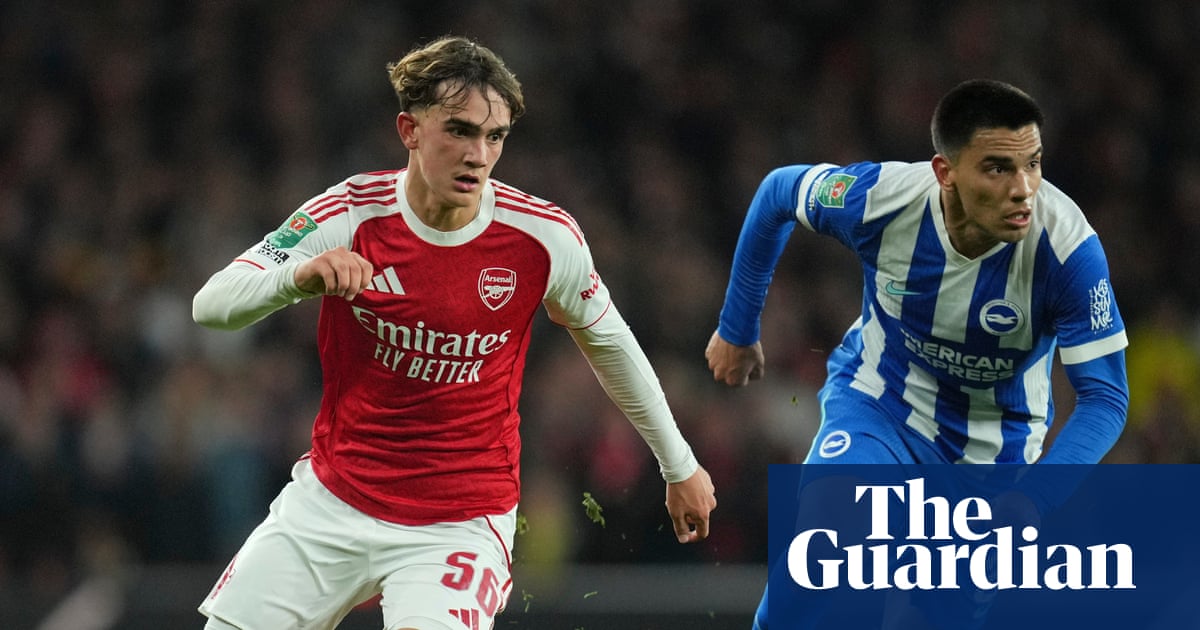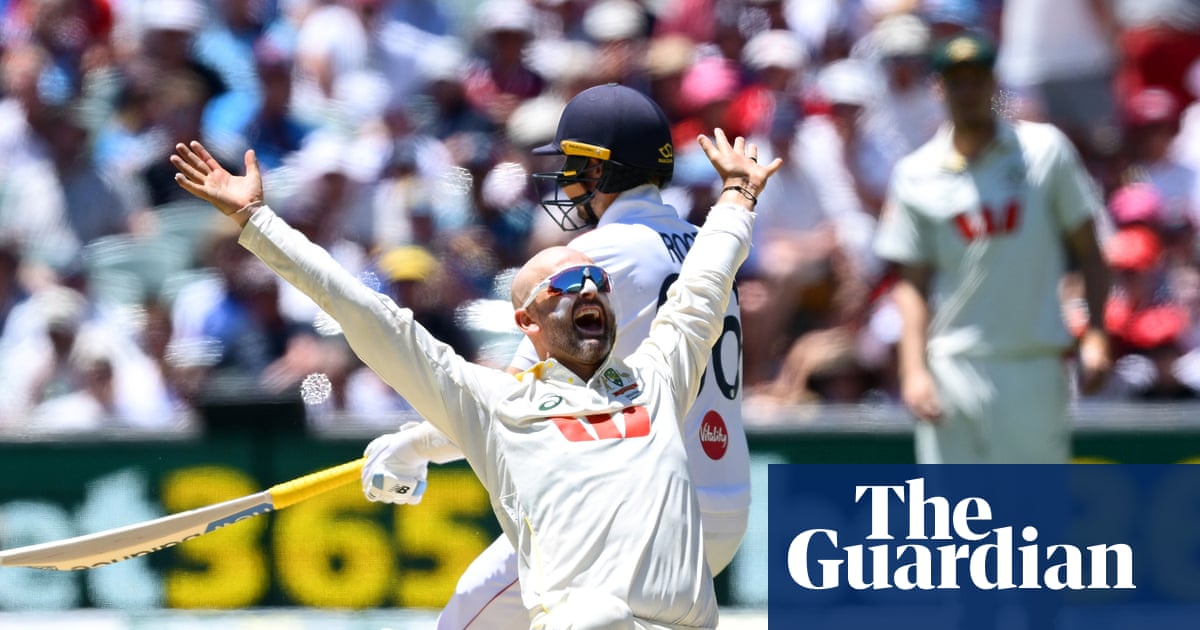The discussion during a meeting of Premier League sporting directors this year turned to academies and the amount of money spent on homegrown teenagers. The market for players as young as 14 has turned wild, according to industry figures.
“Some wages are astronomical,” one agent says. A sporting director at a top-flight club struggling to keep their best youngsters away from the richest teams in England says: “It’s a nightmare. We have to offer 14-year-olds scholarship contracts just to protect ourselves.”
It is a ruthless business. It was once the case that Chelsea stood out for their pursuit of academy players. They paid well for the best and mostly faced little competition until Manchester City entered the field, taking it to another level. “Stockpiling players,” is how a figure familiar with the market puts it. “If Chelsea bought your player, agents would be saying: ‘We’re eating well tonight.’ Then you’d won the lottery if Chelsea or City wanted your client. But other clubs have started doing it now. The market is crazy.”
Two major factors are cited. Multiple figures mention Brexit as a huge influence, pointing out the introduction of restrictions on signing players from the EU under the age of 18 has raised the premium on English youngsters, and there is also the effect of the Premier League’s profitability and sustainability rules (PSR). If money received for selling academy products counts as pure profit in accountancy terms, then why not make a relatively small investment in a prospect early on and potentially reap the benefits once they have played first-team football?

A figure at a mid-ranking club talks about an under-15s game against a “big six” club, who fielded five players who cost at least £1m. The calculation is that the outlay is worth it if one of those kids ends up being sold for £50m.
City recently paid a reported £450,000 for the 14-year-old striker William Stanley-Jones from Burnley. Manchester United signed Harley Emsden-James, 16, this summer for a fee worth up to £1m for Southampton. Cambridge United sold Daniel Nneji, part of their under-16s, to Brighton for a club-record fee for an academy player.
Liverpool are viewed as less aggressive, with a source saying they are more reluctant to pay high wages. The champions caused a fuss by poaching Rio Ngumoha from Chelsea, causing friction between the clubs at academy level, but it is believed that was because they offered a clear pathway to a player who is already in the first-team squad at the age of 17. It does not mean Liverpool are invulnerable to raids. They recently lost Isaac Moran, 16, to Newcastle.
The big clubs can take a chance. For the smaller ones, there is concern about whether they can compete. It becomes a fight to keep talent. One debate is whether it is good for a player’s development to leave a smaller club so early. Some convince youngsters to stick with them, but it is getting harder. The challenge is to prove the player’s development will be smoother if they do not make the leap too soon.

The promise of a bigger salary is a temptation, but academy staff seek to show the player the bigger picture. One agent who works heavily with young players argues there are dozens of players as good as Nico O’Reilly at City. He has broken through and taken his chance; will others in lower age groups be as lucky? There is only so much space.
“We sold two of our best players to Arsenal and City,” says a sporting director at a Premier League club. “But you understand when it happens. Players get offered ridiculous money when they’re 15. And agents can make a fortune.”
Many say Brexit is a bigger influence than PSR, caused by a shift in the regulations since the United Kingdom left the EU in 2020, with under-18s no longer eligible for governing body endorsements (GBEs). There was a time when Arsenal could lure a young Cesc Fàbregas from Barcelona and Chelsea could take the Dutch defender Nathan Aké from Feyenoord. Those opportunities are mostly closed off now.
Some will see that as positive. In theory, pathways for homegrown players should become unblocked. The Football Association naturally wants more English players playing in the Premier League. Gareth Southgate often bemoaned the lack of players at his disposal when he was the England manager. It seems obvious to conclude that fewer foreign players coming into academies should make it easier for locals to reach the first team.
Not everyone agrees. One experienced academy figure feels the unintended consequence of the post-Brexit regulations is “the ability of young Premier League talent to compete with the best is stifled”. The contention is that standards in youth football have dropped because there is less exposure to international players. Unable to scour Europe for talent, the big clubs are searching closer to home. Aston Villa have signed Fletcher Boyd, a 17-year-old Scottish midfielder, from Aberdeen for a reported £1m.
“England had a very successful period at youth level,” the academy figure says. “My sense now is that the level of play is not what it was a decade ago. Clubs are going after Scottish and Northern Irish players, but are they going to be as good as the foreign boys?”
The Premier League can point to the EFL Trophy and the Premier League International Cup as evidence of English youngsters getting a taste of competitive action and foreign competition. A way around the GBE regulation also comes from the introduction, in June 2023, of elite significant contribution (ESC) players, who do not meet the GBE criteria but are able to demonstrate enough potential to the FA to gain access to the English game.
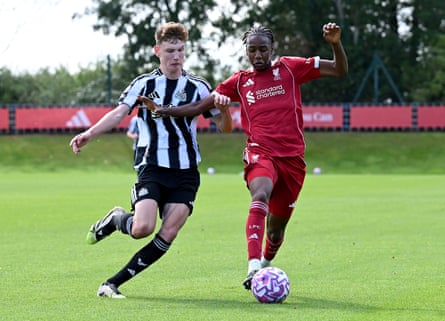
Each season, Premier League and Championship clubs have the opportunity to make up to four slots available for ESC players, depending on the club’s weighted English qualified player minutes percentage. Not all are convinced of the merits of a move designed to encourage use of homegrown players. An ESC slot is in effect blocked if a player does not play sufficient minutes in his first year in England. Alternatively, a slot can be freed up if the player has become eligible for a transfer to the standard GBE.
Some clubs are not convinced these kids will be ready in year one. “Then you have to sell or loan them,” says one academy source, who believes the system is more attractive if you have embraced multi-club ownership and can loan an ESC player to a satellite team to gain experience in a top league.
It seems a narrow path to navigate. Ultimately, the fear within academy circles is that kids are getting too much too soon, lessening their incentive to improve. “The danger is talent gets an inflated view of themselves,” a source at an academy says. “If the talent pool shrinks the standard drops.”
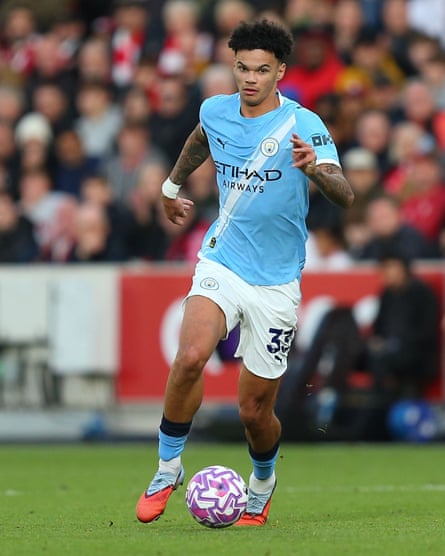
That view is echoed by an agent. “Academy standards are going down. Kids get too much money. If that happens early and you haven’t pushed on by 19 then you end up in League One. Some players you just pay – a Phil Foden or an Ethan Nwaneri. But some don’t move anywhere.”
An example is given of a player who was put on a salary of £8,000 a week, soon had it doubled and is now without a club. There is a youngster who got a good salary at a Premier League club, but is nowhere near the first team and is on loan in the Championship. “And if he doesn’t do it there, then what?” the agent says. “What do you do with him?
“Expectations are set so high. Parents are a problem. You can’t expect a 15-year-old to make such a big decision. Some parents just move for the money. But some families don’t have a lot and it’s hard to turn down.”
It is unlikely to change. One source floats the idea of players not being able to move until they are 18, then immediately says it will never happen. Another says clubs who keep losing talent want the authorities to guard against illegal approaches, but they know the FA can do only so much. “You can try a sting,” an academy figure says. “But people slow down when they see speed cameras, don’t they?”
The money is likely to keep flowing.

 2 months ago
55
2 months ago
55







